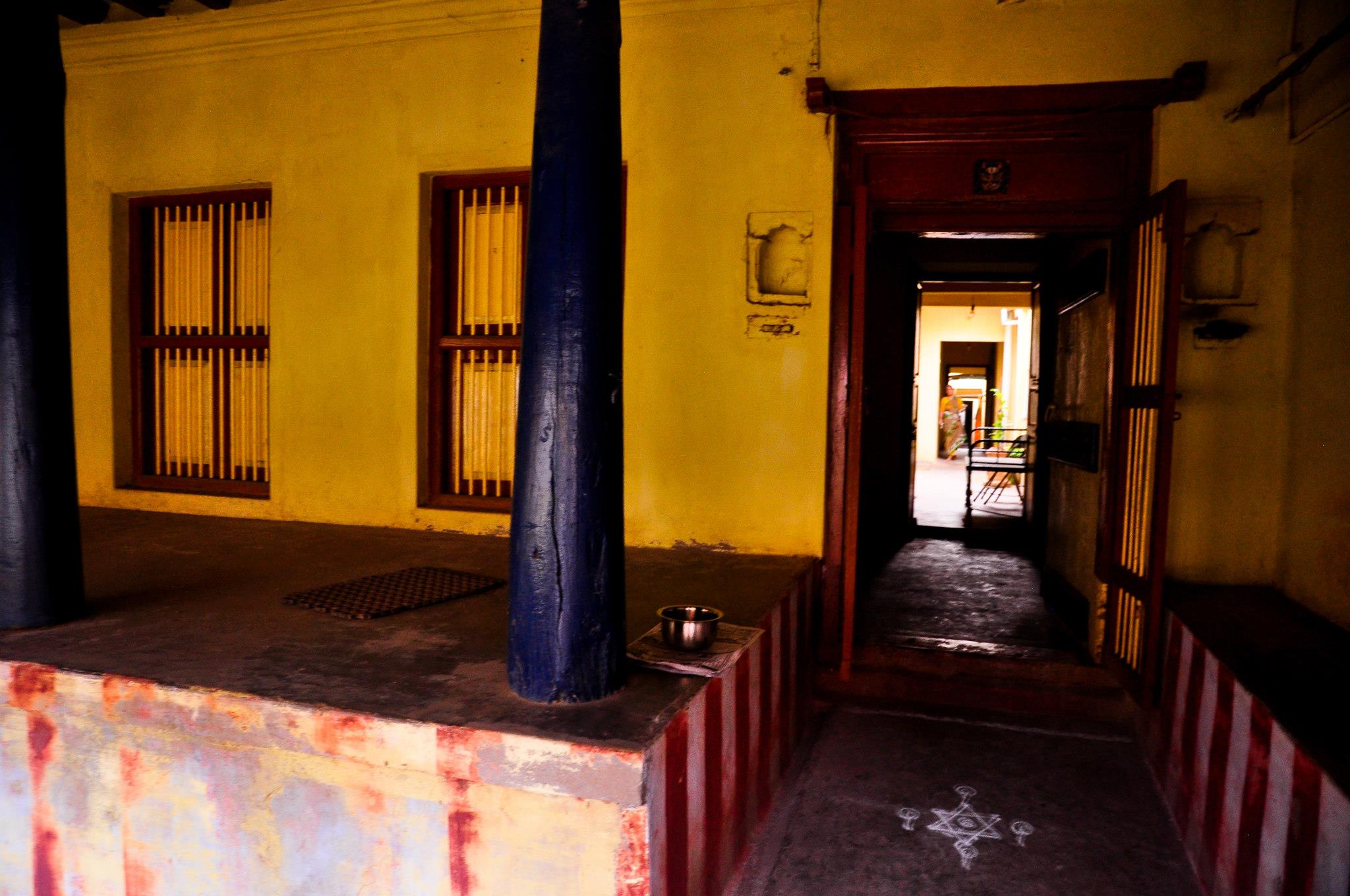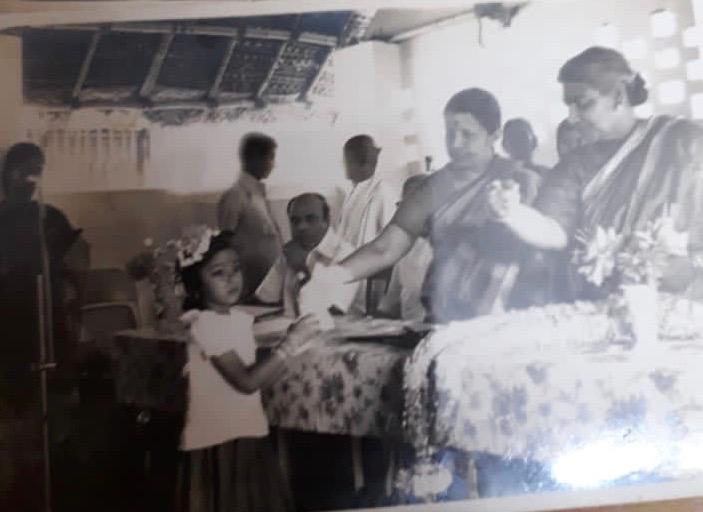From everywhere and from nowhere
My husband lived in the same house, with the same three people, for the first twenty years of his life. He went to the same school from kindergarten until college. His early years were filled with love. His mom worked as a teacher, a job that made her feet hurt and her voice hoarse at the end of long days. Despite that, she religiously woke up at 5 AM everyday to pack fresh, home-cooked lunches for her kids. My husband spent afternoons with aunts that coddled him. He went to the beach on the weekends with his uncle and cousins, where they ate ice cream cones or slices of green mango sprinkled with chili and salt. My husband's family was his rock, his foundation.
For me, it was something altogether different. I lived in seven different houses with six different families for the first twenty years of my life. My friend Nancy, a self-described army brat, tells me it was similar for her. She moved around as a child too, her father getting posted in different bases around the country, from Oregon to California to Alaska to Hawaii. My father was not in the military, but I moved around thanks to the biggest accident of my life - the accident of losing my mother when I was five.

A typical traditional house in South Tamil Nadu.
The first house I lived in was our ancestral home in a tiny, quiet town called Kumbakonam. The house, typical of traditional houses in that region, was deeper than it was wide. You could start walking from the entrance, in a straight line for ten minutes, deeper and deeper into the bowels of the house, until you reached the lush backyard, thick with shrubs and coconut and mango trees. It had multiple open courtyards, a dank kitchen with a wood burning stove and stone grinding equipment. It had a large indoor swing - the swing on which my mother drew her last breath - made of wooden plank and iron chains. It had a dark bedroom with a small window from which I glimpsed my mother's last journey to the crematorium. I lived in this house for the first five years of my life. After my mother died, I moved to my next house.
My next house, where I lived with my grandma and my father, was a flat on the third floor of a building in Chennai. I remember few things about this house. There was an Asoka tree outside the window to our bedroom, where a sparrow had meticulously built a nest out of twigs and cotton. There was a community garbage heap nearby that reeked of rotten fruits and excrement. My grandmother was a no-nonsense woman and an indefatigable task master. She expected a lot of out of herself and a lot out of me. She wanted to raise me - a motherless child who was suddenly her responsibility - into a charming wife and a dutiful daughter-in-law. I would grow up to admire my grandma's strong will and sheer strength, but we were constantly at odds. She wanted me to learn to clean the house and fold the laundry. I - strangely for a child, but not too strangely for a rebellious child - wanted to study instead.
I remember this time in my life as one of constant haranguing from my grandma and constant resentment on my part. Once I complained to an aunt that was visiting us that my grandma would not buy me shampoo - shampoo being too "western" for her. I protested that my hair dripped with oil and smelled. I was embarrassed at school. My aunt stuffed a hundred rupees note into the palm of my hand and told me to buy myself some satchels of shampoo. It was important - she insisted - that I learn to quietly solve my own problems. It was no good just fighting the same fight every day and expecting a different result. This became an important lesson for me that would stay useful into my adult life. Speak up, find creative solutions to problems. Most importantly, become self-reliant.

Me, getting some kind of a prize, at my school in Kumbakonam
My dad began to suspect that all was not okay between me and grandma. He argued also that I needed the care of a younger, more modern woman - a mother figure. My mother's sister agreed to take me in. Her house, back in Kumbakonam, was built with ancient stones, had low ceilings and little alcoves for oil lamps. The routines in this house were so different from what I had become used to in bustling Chennai. Unlike my grandma, the womenfolk here were never rushed. They treated themselves to long afternoon naps every day. At school too, everything was different. New uniforms, new teachers, a new syllabus, new rules, and most importantly new classmates. I learned that, at home and at school, I had to watch and learn constantly. Everyone was different, and every family had a dozen unspoken rules. I had to understand what made up this new world, and how I could be ok within it. Watch, learn, adapt. Another life lesson I would carry with me into my adult life, when I became an immigrant in two countries and a leader in a field filled with people that didn't look like me.
After two years, I moved again. I do not fully grasp the reasons for this move or the three that followed it, but I know that my dad always had good reasons in his mind. He was a single dad struggling to raise two kids with little help. And of course, I was not an easy child for relatives to care for. While I could swiftly adapt to new surroundings, I had a mind that buzzed like a beehive, always looking for mischief or trouble. I also had a mouth on me. I remember constantly quibbling with folks, arguing stridently as though I was speaking at a civil rights gathering. So, off I went, from one home to another, packing up my few things and saying goodbyes to the few kids that were just beginning to become friends.
I sometimes wonder how my life would have been if I had had more stability in my childhood. Would I have found it easier to be a good student? Would I have been happier? I don't know. Growing up, I envied my brother because he got to stay with my dad, while I was thrown around like a hot potato. But in hindsight, my fragmented childhood made me who I am today. I was reading Michelle Obama's book Becoming recently, and this quote caught my attention.
Your story is what you have, what you will always have. It is something to own.
My story is what I have. It is a story of separations, losses, and strife. It is a story that made me fear being abandoned, fear not being loved, and - paradoxically - gave me an unusual level of detachment from family. Moving around so much and the constant learning were exhausting. But it also taught me agility, comfort with change, resilience, and the courage to stand up for myself. Until recently, I could not point to any single house and call it home. Unlike my husband, I could not call a city or town "my hometown". I was from everywhere and from nowhere. While I now have a home that I have lived in for 14 years, I still feel untethered to places and objects. My story is not a pretty story, but it is not an ugly one either. It is simply a story that made me.
